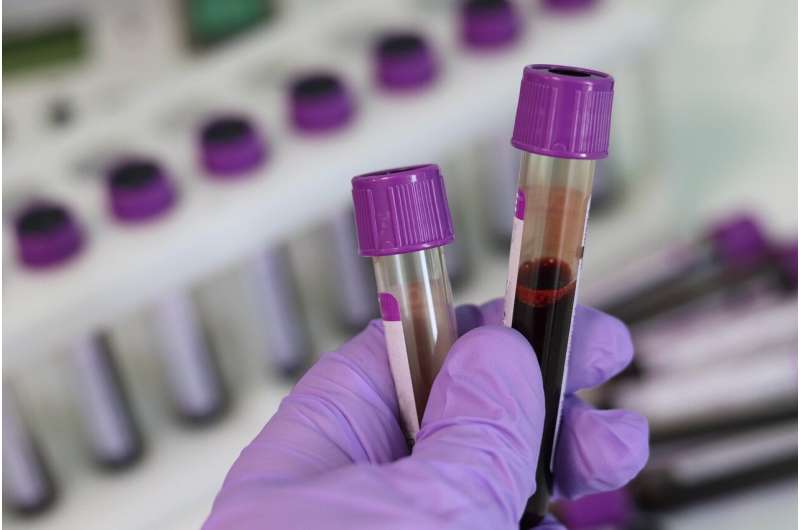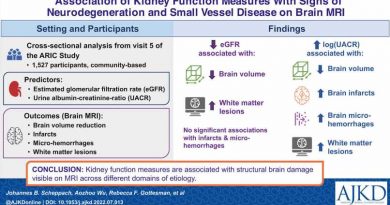Blood tests offer early indicator of severe COVID-19

When patients with COVID-19 arrive in emergency rooms, there are relatively few ways for doctors to predict which ones are more likely to become critically ill and require intensive care and which ones are more likely to enjoy a quick recovery.
New Yale research could help them identify important early clues. In a recent study, researchers report that a series of biomarkers, or biological signals, associated with white blood cell activation and obesity can predict severe outcomes in COVID-19 patients.
The findings appear in the Feb. 26 edition of Blood Advances.
“Patients with high levels of these markers were much more like to require care in the intensive care unit, require ventilation, or die due to their COVID-19,” said Dr. Hyung Chun, the lead author, an associate professor of medicine in cardiovascular medicine and pathology and director of translational research at the Yale Pulmonary Vascular Disease Program.
Previously, a few laboratory studies had identified possible indicators of severe COVID-19, including D-dimer levels, a measure of blood coagulation, and levels of proteins known as cytokines, which are released as part of inflammatory responses in the body. However, until now, no laboratory marker could predict which patients with COVID-19 would eventually become critically ill prior to showing clinical signs and symptoms of severe disease.
For the new study, Yale researchers used proteomic profiling—a screen for multiple proteins within the blood—to analyze samples taken from 100 patients who would go on to experience different levels of COVID-19 severity. In all cases, the blood samples were collected on the patients’ first day of admission. The researchers also analyzed clinical data for over 3,000 additional patients with COVID-19 within the Yale New Haven Hospital system.
They found that five proteins (resistin, lipocalin-2, HGF, IL-8, and G-CSF) that are associated with neutrophils, a type of white blood cell, were elevated in the COVID-19 patients who later became critically ill. Many of these proteins had previously been associated with obesity but not with COVID-19 or other viral illnesses.
Notably, the elevated neutrophil biomarkers for patients who would go on to experience more serious symptoms were evident before those symptoms appeared. All COVID-19 patients who were admitted or transferred to the ICU had elevated neutrophil activation markers, while these biomarkers remained low for patients who never developed severe illness. None of the patients with lower neutrophil biomarker levels died.
“This is one of the first demonstrations that a set of biomarkers in the blood of COVID patients can predict eventual ICU admission, even before such patients become critically ill,” said study author Dr. Alfred Lee, associate professor of medicine in hematology, director of the Yale Medical Oncology-Hematology Fellowship Program, and a member of the Yale Cancer Center.
Having early knowledge of these indicators could significantly improve patient treatment, the researchers said.
“If a diagnostic test [for these biomarkers] could be ordered early, it could give us a better sense of who is more likely to become critically ill and will benefit from a higher level of care and consideration for therapies that affect the immune system early on in their hospitalization,” said Chun. “Many of these drugs do carry potential side effects, and these tests may help identify those patients who would benefit the most.”
The study also underscores the connection between COVID-19 and obesity, researchers said. The Centers for Disease Control and Prevention notes that obesity and severe obesity increase risk of severe illness from COVID-19. Obesity triples the risk of hospitalization from COVID-19, and levels of body mass index has been found to correlate with the risk of death from COVID-19.
Neutrophils are inflammatory cells, said Lee, so it makes sense that they would be elevated in the context of both obesity—which involves chronic, low-grade inflammation—and COVID-19, which causes hyperinflammation in the most severe cases, leading to tissue damage and organ failure.
“There are also signs that neutrophils might participate in thrombosis or blood clotting,” said Lee, another troubling hallmark of COVID-19.
The researchers will expand their study into the relationship between biomarkers and COVID-19 by looking at patients who have recovered from acute illness.
“We are hoping these findings motivate other groups to look at their own patient populations,” said Chun, adding that they’ll need additional validation studies that would support developing diagnostic tests for these biomarkers.
The research involved collaborators from across many different Yale departments, including Matthew L. Meizlish, an M.D.-Ph.D. student; Dr. Alex Pine, an assistant professor of medicine in hematology and staff physician at the VA Medical Center in West Haven; Jason Bishai, a graduate student; Hanming Zhang and C-Hong Chang, postdoctoral fellows; and Dr. David van Djik, an assistant professor of medicine in cardiology.
Source: Read Full Article



